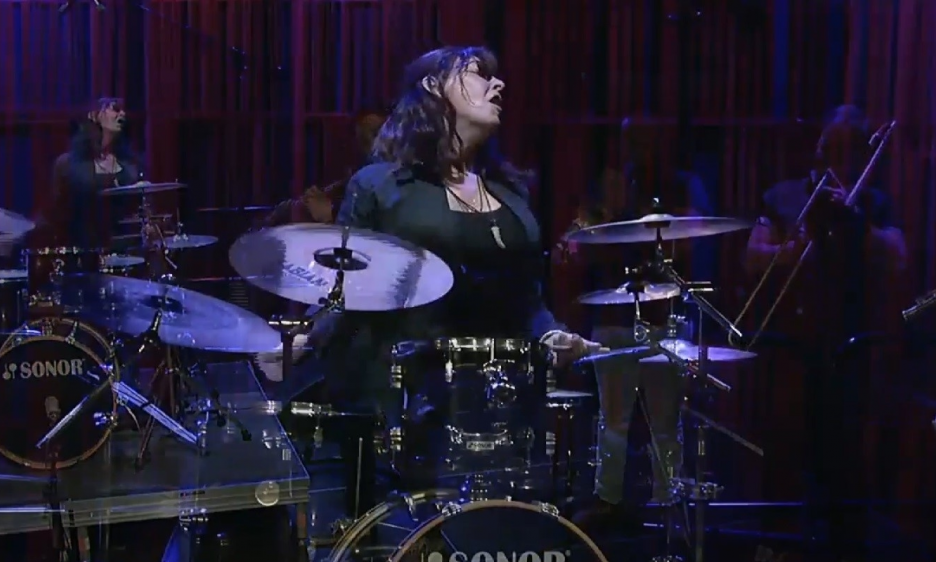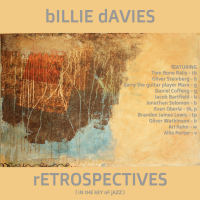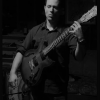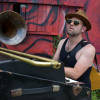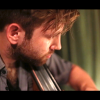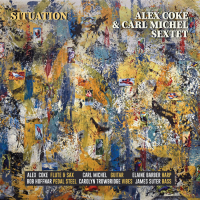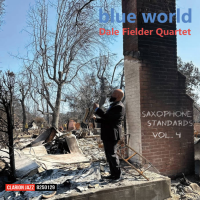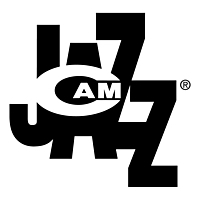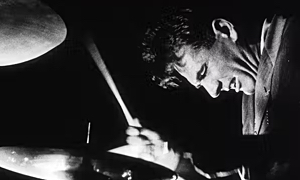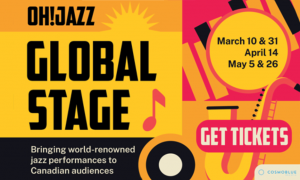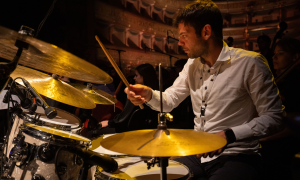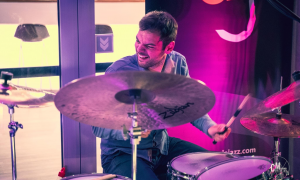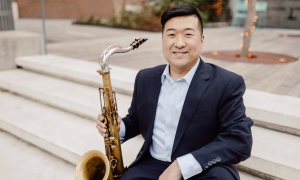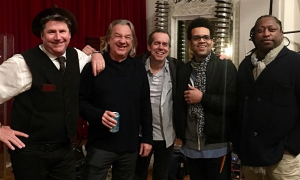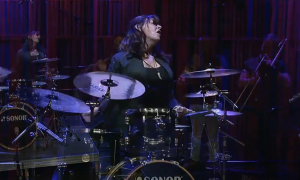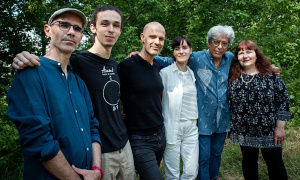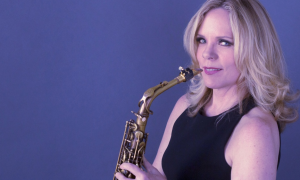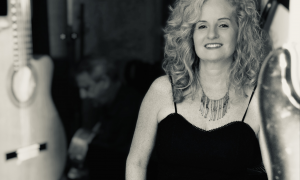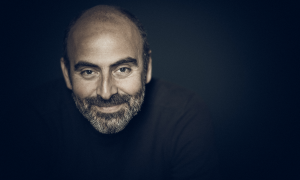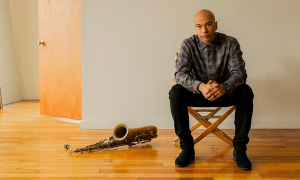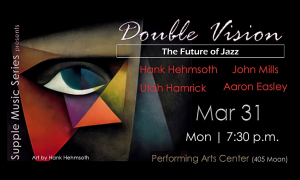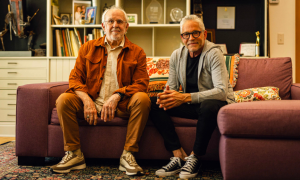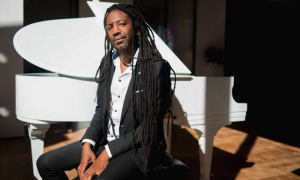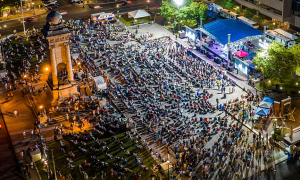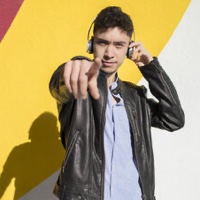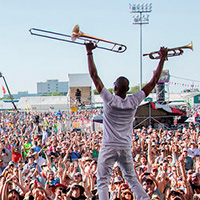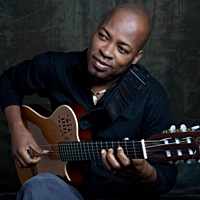I want to end up with music that is not written down but is felt and expressed at that moment of playing, of recording, of performing, of expressing. This deliberate moment of choices, chances and inspirations may become a specific type of music, but it never ends up being a predetermined or planned music, the notes played are never written down. I just want to end up with something where I hear unexpected, emotional, passionate, challenging music never heard before.
—Billie Davies
All of Billie Davies' music is improvisational. A conversation between musicians, a joint emotional expression inspired by a certain common feeling, thought or perspective that is being communicated to an audience, a listener, a community. An expression that is free of dogma and styles or fashions or politics or religions or trends. An expression that comes from way deep down and can stand on its own and is a reflection of our society, our tribe, our life, our universe.
Billie Davies always has a folder with recorded improvisations that she adds to whenever something musically great is recorded, and so we thought that exposing this music to be heard, creating and releasing an album, celebrating the music that was created primarily with Billie Davies playing her acoustic Sonor basswood drum set she played for a last time in December of 2018 at the Art Klub in New Orleans, even-though she would sometimes combine that set with her electronic drum set, as on Sunraaah and Melancholia Abstractissimus, until around 2014/15. She now plays exclusively on her Yamaha DTX-700 series electronic drum set as on “Thinking Of Marie Laveau," “On Hollywood Boulevard," “Whadeva" and “Pandemos."
She completely stopped rehearsing and writing for projects in 2018, as was the case with the musical adventures around “Perspectives" in 2018, they just started playing around on the words of Billie Davies and on each other's expressions, “Whadeva" in 2020 and “Pandemos" in 2021, celebrating the freedom of expression, the freedom of playing, the avant-gardist free improvisation that has become so very primary with her, that is the purpose, that is the intent of this album, so you may hear, so you may experience your own perspective when you listen.
The musical improvisations on Retrospectives (In The Key Of Jazz), these works of art, are some of the favorite moments of what happened around Billie Davies in Hollywood, Los Angeles and New Orleans between 2012 and 2018, resulting in this heartfelt music, uncompromised and freely improvised and expressed with full passion and intensity straight from the heart and the soul, in the moment. This music was mostly recorded by Mike Davies during rehearsals, only the very in-crowd got to ever hear these.
“I want to end up with music that is not written down but is felt and expressed at that moment of playing, of recording, of performing, of expressing. This deliberate moment of choices, chances and inspirations may become a specific type of music, but it never ends up being a predetermined or planned music, the notes played are never written down. I just want to end up with something where I hear unexpected, emotional, passionate, challenging music never heard before." Billie Davies.
“Billie Davies' music is unapologetically moving in the direction of “true art” and plays with colors, moods, movements, feelings and interactions, a paradoxically more advanced concept of expression. John Cage among others developed a type of music named aleatoric music, a music in which some element of the composition is left to chance and/or some primary element of a composed work's realization is left to the determination of its performer(s).
Visual art, as it becomes more abstract becomes more like music: an art form which uses the abstract elements of sound and divisions of time. In turn, Billie Davies is creating music which is becoming more like a visual art form, a way of creating an 'inner' object and projecting it outwards through sound, believing that art is no longer something remote, but life itself, be it constructivist or pluralist in essence. Disintegration of conventional ideas of form and matter is underlying the divorce of the concrete and the abstract in modern art. In a 1957 lecture, Experimental Music, John Cage described music as “a purposeless play" which is “an affirmation of life – not an attempt to bring order out of chaos nor to suggest improvements in creation, but simply a way of waking up to the very life we're living."
You never really know what’s going to happen when you play abstract music. Our relative lack of knowledge may seem instantly intimidating.
We can never take the full measure of musical infinity but we can listen to it as Billie Davies continues her ascent."—(An excerpt from the article “Music in the realm of abstract surrealism? – An analysis of something not to be analyzed." by Daniel Coffeng, 2013)
The artists on Retrospectives (In The Key Of Jazz) are musicians that answered her call over these specific 6 years of recording albums and performing on her acoustic or hybrid drum set from 2012 to 2018, these pieces of music have never been released and are all improvisations that happened during rehearsals and/or performances in between or leading up to her album projects in Hollywood, Los Angeles and in New Orleans.
1. Hollywood Boulevard From The Window (11:16)
Billie Davies, Tom Bone Ralls, Oliver Steinberg. (June 2012)
Recording and Mixing by Mike Davies at Billie Davies Hollywood Boulevard Studio in Los Angeles. Mastered by Mike Davies in 2025
Looking through the window of our studio on Hollywood Boulevard, a grey clouded foggy day, we let our imagination go free on this free improvisation. Oliver Steinberg sure went to town on this one, he couldn't stop and had so much to say and we didn't want to turn his bass down :)
2. Do Do Kindje Doo (08:27)
Billie Davies, Tom Bone Ralls, Oliver Steinberg, Larry the guitarist Marx. (December 2012)
Recording and Mixing by Mike Davies at Billie Davies Hollywood Boulevard Studio in Los Angeles. Mastered by Mike Davies in 2025
Ever since Billie heard the song “Jean Pierre" by Miles Davis, she recognized the lullaby that inspired his music and that her grand mother Yvonne, her mother Simone and her aunts Monique and Jeanine would sing to babies:" Dodo, kindje do, slaap en doe je oogjes toe. Je moet niet liggen gapen als je toch niet kan slapen. Dodo, kindje do" or in french:" Dodo, l'enfant do. L'enfant dormira bien vite. Dodo, l'enfant do. L'enfant dormira bientôt." It stayed in her mind forever after she heard it played by Miles, she sang it to her baby son many times... so here is an improvisation on that specific lullaby that she took for a very long time as a kid for granted, inspired by Miles Davis.
3. Sunraaah (13:39)
Billie Davies, Daniel Coffeng, Tom Bone Ralls, Jacob Bartfield (January 2014)
Recording and Mixing by Mike Davies at Royal Studios in Los Angeles. Mastered by Mike Davies in 2025
After the 12 VOLT recording it was time to move on and get to a different project Billie had in mind... it became a free improvisation that ended up making Billie think of Sun Ra, it was also one of the last recordings made in Los Angeles just before she moved to New Orleans. She wanted it to be very electric and synth induced. Just as in the “12 VOLT" album she had combined her acoustic and electronic drums into a hybrid.
4. Melancholia Abstractissimus (12:30)
Billie Davies, Daniel Coffeng, Tom Bone Ralls, Jacob Bartfield (January 2014)
Recording and Mixing by Mike Davies at Royal Studios in Los Angeles. Mastered by Mike Davies in 2025
This is another improvisation that came out of the sessions at Royal Studios in Los Angeles. Billie found herself listening while feeling as if it was an abstract melancholy in reminiscence of a past and yearning for a future. As if she was saying goodbye to Los Angeles. Just as in “Sunraaah" she had combined her acoustic and electronic drums into a hybrid. In March of 2014 she moved to New Orleans... New Orleans was calling for her.
5. Improvisationality (07:16)
Billie Davies, Daniel Coffeng, Jonathan Solomon (December 2014)
Recording and Mixing by Mike Davies at the Billie Davies Studio on Blossom Street in Terrytown / New Orleans. Mastered by Mike Davies in 2025
Billie was working hard at finding the right musicians for the next project after she moved to New Orleans and ended up flying Daniel Coffeng out from Los Angeles to see if they could make that happen, he stayed with her on Blossom Street in Terrytown for a few months, they worked on music, choosing musicians, and performing a few times, but he could not find the excitement for New Orleans nor for the musicians that were attracted to playing with Billie and so they drifted apart, it didn't happen this way... but here is one of the improvisations that show you what a talented technician and player he is, truly a musical artist who did an amazing job on the album “12 VOLT."
6. An Improvisation (16:11)
Billie Davies, Ari Kohn, Branden Lewis, Evan Oberla, Oliver Watkinson (March 2016)
Recording and Mixing by Mike Davies at the Billie Davies Studio on Terry Parkway in Terrytown / New Orleans. Mastered by Mike Davies in 2025
After the recording of “Hand In Hand In The Hand Of The Moon" Billie Davies and the Bad Boyzzzz came to be. And there was all this gigging in hotels and for private parties and in clubs, especially with them and with her favorite trio she had so much fun with, that consisted of Evan Oberla and Oliver Watkinson.
This music is what we loved to do, the standards we played for the gigs challenged us as we wanted to be original, unique in the way we brought it, and we so loved to goof off on these gigs and just go wild. This improvisation makes you hear the talents of all musicians involved, flying high in the key of Jazz and could have fit in with “Hand In Hand In The Hand Of The Moon" as Branden and Evan had just recorded this album a while back with Billie.
7. An Improvisation Too (11:33)
Billie Davies, Ari Kohn, Branden Lewis, Evan Oberla, Oliver Watkinson (April 2016)
Recording and Mixing by Mike Davies at the Billie Davies Studios in Terrytown / New Orleans. Mastered by Mike Davies in 2025
Another Billie Davies and the Bad Boyzzzz free improvisation. This music is what we loved to do, this improvisation makes you hear the talents of all musicians involved, flying high in the key of Jazz at our rehearsals and performances... They were technical beasts and Evan had a lot to say that day.
8. Art (09:59)
Billie Davies, Evan Oberla, Oliver Watkinson, Ari Kohn, Allie Porter (March 2018)
Live recorded at The Mint in the New Orleans Jazz Museum by Joe Stolerick, Mike Davies mix and post production. Mastered by Mike Davies in 2025
This version of “Art" is from a first try performance, at The Mint at The New Orleans Jazz Museum, at what would eventually, later that year, become the album now called “Perspectives" performed and recorded Live at the Art Klub in New Orleans. A completely freely improvised performance with spoken words performed by Allie Porter and written by Billie Davies. We went on stage and just did it... with an audience of 1 that stayed for the entire performance/recording and who seemed just mesmerized by Allie Porter's voice. There is also a video of that performance, named Jazz is Dead? ... “Art."

